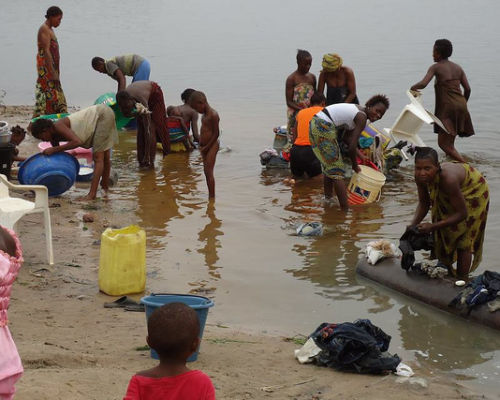Today is “World Water Day”, an annual event organized by the United Nations and marked by organizations and individuals working to improve the sustainability of water around the world. This year’s theme: “Waste Water”. In today’s issue, Time Magazine highlights five alarming statistics related to water consumption in our world today:
- Over 80% of waste water is not re-used
- 70% of water withdrawals are due to agriculture
- Leaking taps waste about 5,500 litres per year
- Less than 3% of the world’s water is drinkable
- Over 20% of freshwater fish species are now extinct
In the far-flung municipalities of Goma and Bukavu in Eastern Democratic Republic of Congo, access to safe, sustainable sources of water is far from universal, virtually unregulated, and poorly managed. Beyond pressing issues of poverty and conflict, a major contributor to this is weak coordination and advocacy among a host of actors, including government, informal community groups, NGOs and others. LINC recently completed baseline research into this issue, utilizing a novel tool to analyze the relationships of actors and their roles in water service provision: Social Network Analysis.

Waste consumption remains a critical issue in the DRC (Photo Credit: Oxfam East Africa licensed under CC 2.0)
Our research yielded important insights into the formal and informal networks for collaborating, resolving issues and influencing decisions related to water provision and use, including:
- Key gaps in coordination between actors working separately in on water and sanitation, despite the inter-related nature of these issues;
- A generalized absence of formal water advocacy and dialogue platforms to flag and address water issues;
- Presence of a well-intentioned private water utility service provider actively conducting outreach, but lacking the means to effectively address complaints.
On World Water Day it is important to keep in-mind the multi-dimensional aspects of water sustainability and use. It’s more than just infrastructure and finance. In municipalities such as Goma and Bukavu, coordination and advocacy are key.
